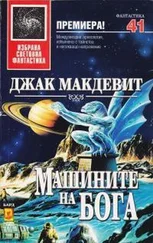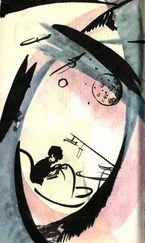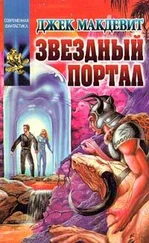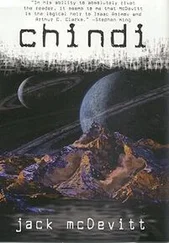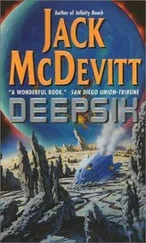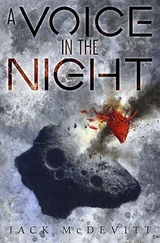In London, Philip Cage, a physicist known primarily for making artificial gravity possible during spaceflight, continued to claim he had not been enhanced by his parents, despite evidence to the contrary. The entire affair was in doubt because the records had been destroyed in a fire, and a lot of people thought nobody could be that smart without help.
From Derby, North Carolina, came the story that caught his attention, and that would make the next edition of The National: A tax auditor had been jailed for assault. The assaultee had been the Reverend Michael Pullman, of the Universal Church of the Creator. The tax auditor, one Henry Beemer, had approached the Reverend Pullman and, with no apparent provocation, struck the preacher with a book he was carrying and knocked him down. The book was A Connecticut Yankee in King Arthur’s Court.
The motive? Henry Beemer claimed psychological damage resulting from a church-operated school run by Pullman. “Starting when I was seven,” he was quoted as saying, “they talked all the time about hellfire. How hot it was. How you burned forever. How easy it was to go there. I’m forty-two, and I’ve never been able to get it out of my mind.”
That would be an irresistible story for The National. MacAllister assigned one of his reporters to look into it, and decided to go a step further. “Tilly,” he said, “see if you can get this guy Beemer on the circuit for me.”
HENRY BEEMER DID not look like the sort of man who would assault somebody in a bookstore. He appeared to be about average size. He was thin, with thin lips and thin hair and brooding gray eyes, a man, perhaps, who did not get enough sun. You would have known immediately that he worked in an office, in a subordinate position.
“What can I do for you, Mr. MacAllister?” he asked. He was seated on a cheap imitation-leather sofa. A wall full of books rose behind him.
“I’m from The National, Henry.”
“I know who you are.”
“We might be interested in doing your story. Would you be willing to cooperate?”
“I don’t think so, sir,” he said. “I’d just like this to be over.”
“I understand. Do you have a lawyer?”
“Yes. Mr. Pontis.”
MacAllister hesitated. Then: “Tell me why you did it.”
“Look,” he said, “I’ve already talked to the reporters.”
“Talk to me, please. I’ll only take a minute.”
“I can’t really explain it in any way that makes sense.”
“Try me.”
He scowled. “I was annoyed at what he’d done. What they’re still doing.”
“What had he done?”
“He runs the church school.” He cleared his throat. Swallowed. “I mean, I don’t even believe in hell.”
“If you did, you wouldn’t have attacked him.”
He laughed. It wasn’t the halfhearted chuckle MacAllister might have anticipated, but a genuine cackle. Then he settled down. “They’re going to fire me.”
“Who is?”
“Jackson Brothers. My employers. We’re an accounting firm.”
“I’m sorry to hear it.”
“My own dumb fault.”
“Tell me what happened, Henry.”
Beemer thought about it. “You ever been to a church school, Mr. MacAllister?”
“As a matter of fact, I have.”
“Did they talk much about hell?”
“Yes, they did.”
“For minor things. Miss church, you go to hell. Kiss a girl, you go to hell.”
“I remember the routine.”
“I started when I was seven. I hated it. I used to wish I’d been born into some jungle tribe where everybody was a heathen. Thinking that way was a sin they hadn’t thought of, so I thought I was safe.
“In the history class they talked about freedom of religion. And I used to think how that was for other people, but not for me. I had no freedom to choose how I might worship. If I left the Universals — ”
“The Universal Church of the Creator?”
“Yes. If I left them, I was damned. And they described in graphic detail how it would be. Imagine putting your hand on a hot skillet and holding it there. For a full minute. Then imagine you can never pull it away. And that is nothing compared to — ”
“I get the idea.”
“I was pretty innocent, as kids went. But they made it sound almost inevitable. Slip once — ”
“I went through the same thing, Henry. You must have thrown it off at some point.”
“I did. More or less.” His eyes slid shut. “But I’ve never been able to convince myself that they might not have it right. That when I die, a final judgment will be waiting for me.”
“All right, Henry. What do you plan to do in court?”
“Plead guilty. Take what they give me.”
“You know,” said MacAllister, “there are millions of kids across the country now going through exactly what you went through. Why not confront the church for what they did?”
“Confront the church?”
“Yes.”
“No.” He shook his head. “I couldn’t do that.”
“Why not?”
“Nobody would buy it, that’s why. People around here are pretty religious. I’d have to move.”
“You’ve already shown that you’d like to hit back. Why not do it in a way that wouldn’t get you jailed? That might raise the consciousness of some of these people?”
He sat for a long minute, staring at MacAllister. “How would I go about doing that?”
“Decide right now that you’re willing to put up a fight. Do that, and I’ll get you one of the best lawyers in the country.”
MACALLISTER HAD NOT exaggerated when he’d described his schooling background. He’d come from a religious family. His parents had been conservative, and there’d been a time when his father had hoped young Gregory would become a preacher. Which showed how out of touch the old man had been. The earliest religious feeling MacAllister could recall was being annoyed at Adam, because it was his fault that girls subsequently had to wear clothes. In later years, as his lack of faith became increasingly apparent, he’d driven his mother to tears and his father to distraction. His mother had once told him at a church service that he was an embarrassment to the family. This was a family that had never done anything notable, other than stay out of jail.
The evening of his conversation with Henry Beemer, MacAllister recruited Jason Glock, who had a long history of fighting unpopular causes, to offer his services to the defendant. Pro bono.
THERE WAS SOMETHING else of interest. Buried in the routine accounts of rioting in the Middle East, celebrities in trouble, and corrupt politics, was another moonriders sighting. A distant one this time. Out at Capella. Wherever that was. There had been a flurry of sightings recently, and the odd part was that they were being captured by sensors and telescopes. Visuals could be faked easily enough, but it was hard to understand professional pilots going to the trouble. Especially when they knew they were going to be laughed at by skeptics.
He’d been gathering material for years on a history of self-delusion. The book, with the working title Dark Mirror, would contain chapters on religion, communism, the Shakers (those magnificent celibates who had gone inevitably out of existence), various political movements, the back-to-nature fantasies of the mid twenty-second century, and a host of others. He was coming to realize he should incorporate a section on alien visitors. Yet this didn’t feel like quite the same thing. “Tilly,” he said, “see if you can get through to Priscilla Hutchins for me.”
He started leafing through the report from the marketing division, looking first at the bottom line, which was okay. MacAllister always started with the bottom line. In all things. Had anyone asked, he would have said it was the secret of success. He was still analyzing numbers and projections when Tilly told him the connection had been made, and the woman herself materialized in front of him.
Читать дальше


